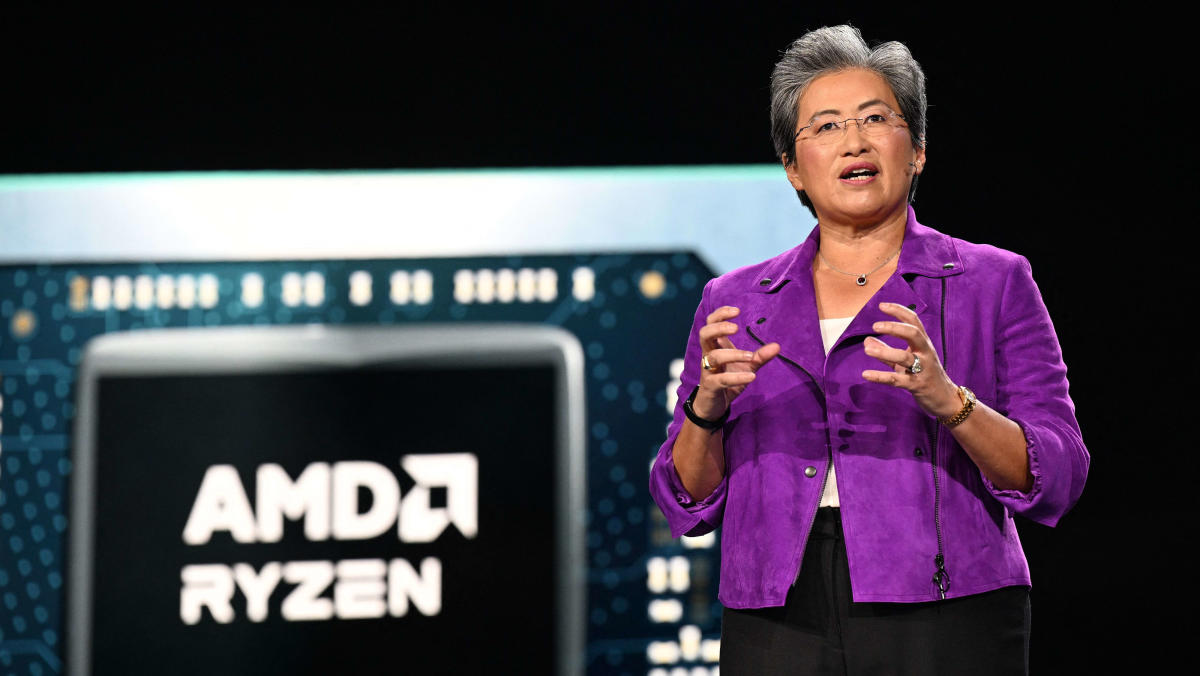Is This the ‘iPhone Moment’ for AI-Powered PCs? Insights from AMD’s Leadership
In recent discussions, executives at AMD have drawn intriguing parallels between the burgeoning landscape of AI-powered personal computers and the groundbreaking launch of the iPhone in 2007. This comparison isn’t merely a marketing ploy; it underscores significant shifts in technology that could redefine personal computing as we know it. The implications of this evolution are profound, not only for consumers but also for the broader market dynamics.
The Rise of AI in Personal Computing
Artificial intelligence has permeated various sectors, from healthcare to finance, but its integration into personal computing represents a new frontier. AMD’s leadership suggests that we are on the cusp of a transformation similar to that experienced with smartphones. Just as the iPhone revolutionized the way we communicate, AI-powered PCs are poised to change how we interact with technology in our daily lives.
AI capabilities are increasingly becoming standard features in personal computers. These systems can learn user preferences, automate mundane tasks, and enhance productivity in ways previously thought impossible. As AMD’s executives noted, we are witnessing the dawn of a new era in computing where machines learn and adapt, making them more intuitive and user-friendly.
What Is an ‘iPhone Moment’?
The term ‘iPhone moment’ refers to a pivotal point in technology where a new product or innovation fundamentally changes consumer behavior and market trends. The iPhone is often cited as such a moment due to its all-in-one functionality, which combined a phone, an internet browser, and a media player into a single device. This innovation not only created a new market but redefined existing ones.
For AI-powered PCs, this moment is marked by the convergence of powerful hardware and advanced software. As AMD’s leadership emphasizes, the integration of AI into everyday computing tasks is akin to the smartphone revolution. This advancement offers users personalized experiences and capabilities that were previously unattainable.
Consumer Benefits of AI-Powered PCs
Consumers stand to gain significantly from the rise of AI-powered PCs. Here are some of the anticipated benefits:
- Enhanced Productivity: AI can automate repetitive tasks, freeing up time for more important activities.
- Personalized Experiences: AI systems learn from user behavior, providing tailored recommendations and improving user satisfaction.
- Improved Security: AI can detect anomalies and potential threats, enhancing the security of personal data.
- Seamless Integration: AI-powered PCs can work more efficiently with other smart devices, creating a more cohesive tech ecosystem.
The Role of AMD in Shaping the Future
AMD has positioned itself as a key player in the AI PC landscape. By developing powerful processors that support advanced AI capabilities, the company is setting the stage for a new generation of personal computers. AMD’s Ryzen and EPYC processors are designed to handle AI workloads efficiently, allowing for real-time data processing and learning.
Moreover, AMD’s commitment to open-source software and collaborative development fosters an environment where innovation can thrive. This approach not only accelerates the pace of technological advancement but also ensures that the AI-powered PCs are accessible and beneficial to a broader audience.
Market Implications of AI-Powered PCs
The introduction of AI into the personal computing market could have several implications:
- Increased Competition: As more companies recognize the potential of AI, competition will intensify, leading to faster innovation and better products for consumers.
- New Business Models: The rise of AI could lead to new business models, such as subscription services for AI capabilities or pay-per-use models for advanced features.
- Shift in Consumer Expectations: With AI becoming more prevalent, consumers will expect smarter, more responsive devices that can adapt to their needs.
Challenges Ahead
Despite the promising future of AI-powered PCs, challenges remain. The integration of AI into personal computing must be handled carefully to avoid potential pitfalls. Some of the key challenges include:
- Privacy Concerns: As AI systems collect and analyze user data, privacy issues become paramount. Ensuring that user information is secure and used ethically is crucial.
- Technical Barriers: The development and deployment of AI require significant technical expertise. Companies must invest in talent and infrastructure to stay competitive.
- Consumer Education: For AI-powered PCs to be successful, consumers need to understand their features and benefits. Education initiatives will be vital in driving adoption.
The Future of Personal Computing
As we look ahead, the future of personal computing appears bright with the integration of AI. AMD’s leadership has highlighted this critical inflection point, suggesting that we may indeed be witnessing an ‘iPhone moment’ for AI-powered PCs. This evolution promises to enhance our interaction with technology, making it more intuitive and efficient.
The potential of AI in personal computing extends beyond mere convenience. It could fundamentally change how we work, learn, and interact with the world around us. As AI continues to develop, the implications for both consumers and businesses will be profound.
Conclusion
In summary, the rise of AI-powered PCs, as emphasized by AMD’s executives, holds the potential to reshape the personal computing landscape in a manner reminiscent of the iPhone’s impact on mobile technology. As we enter this new era, consumers can look forward to enhanced productivity, personalized experiences, and innovative solutions that meet their evolving needs.
The journey ahead is filled with opportunities and challenges. By embracing this technological shift, we can unlock new possibilities in personal computing, ushering in a future where AI enhances our everyday lives in ways we are just beginning to imagine.
See more Future Tech Daily

